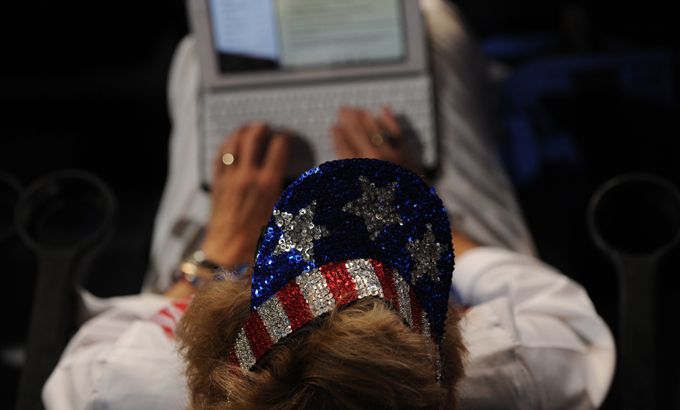
Obama: Under surveillance
As warrantless electronic surveillance in the US surges, how far have civil liberties been eroded under the president?
On Monday, the US Supreme Court is hearing a challenge to the government’s controversial wiretapping programme, a policy that gives the government unprecedented power to intercept communications – and which has seen thousands of US citizens secretly monitored.
|
“You can never know everything, but I think we have a better idea than anyone else in the world what’s out there unless one wishes to go into paranoid fantasyland.” – David Isby, a national security analyst |
It has been brought by a group of attorneys, journalists and human rights organisations.
Following the 9/11 attacks, George W Bush, the then US president, secretly expanded the Foreign Intelligence Surveillance Act (FISA) to allow the government to eavesdrop on individuals without obtaining a warrant.
It became law in 2008 after getting the approval of the US Congress.
According to the American Civil Liberties Union, the programme has expanded under Barack Obama.
His administration argues that the surveillance powers help prevent further attacks on US citizens.
|
“Someone once said: ‘Just because you are paranoid it doesn’t mean they are not out to get you’. And in fact paranoia is quite reasonable here, given the secrecy that accompanies this law. The law is in total secrecy and … we know the law has been abused. We know that the law has been violated … and we also know that the benefits from the security are nowhere near as claimed.” – Chip Pitts, a law professor at Stanford University |
Despite promising that his presidency would move away from the policies of his predecessor, many campaigners say the opposite has happened – pointing to the expansion of the Patriot Act, drone strikes and increased powers of detention as evidence of an erosion of civil liberties under Obama’s watch.
The American Civil Liberties Union (ACLU) report that under Obama there has been a dramatic increase in warrantless electronic surveillance.
They say that between 2009 and 2011 the number of people subjected to telephone wiretapping has at least doubled.
There was also a 361 per cent increase in the number of Justice Department authorisations for email surveillance in the same time period.
And in 2011, mobile phone companies received 1.3 million demands for subscriber information.
So, what is Obama’s position on civil liberties?
To discuss this, Inside Story Americas is joined by guests: Rocky Anderson, the Justice Party presidential candidate; Chip Pitts, a law professor at Stanford University and an international human rights activist; and David Isby, an author and national security analyst.
| “I voted, along with other members of this congress, right after 9/11, for the United States to defend itself, but it’s equally important that we not lose our freedoms or our constitutional protections while we’re engaged in that defence. We take an oath not only to defend the constitution, but we have to keep in mind that that oath and that constitution is really a part of America’s first line of defence.”
Dennis Kucinich, US representative |
OBAMA’S CIVIL LIBERTIES RECORD:
- When he took office, Obama said he would close the Guantanamo Bay detention centre, a promise he has so far failed to keep
- At the end of 2011, Obama signed the National Defense Authorization Act which codified indefinite military detention without charge or trial into law for the first time in American history
- The Obama administration has increased the frequency of drone strikes
- The president personally authorises assassinations from what have been termed ‘kill lists’